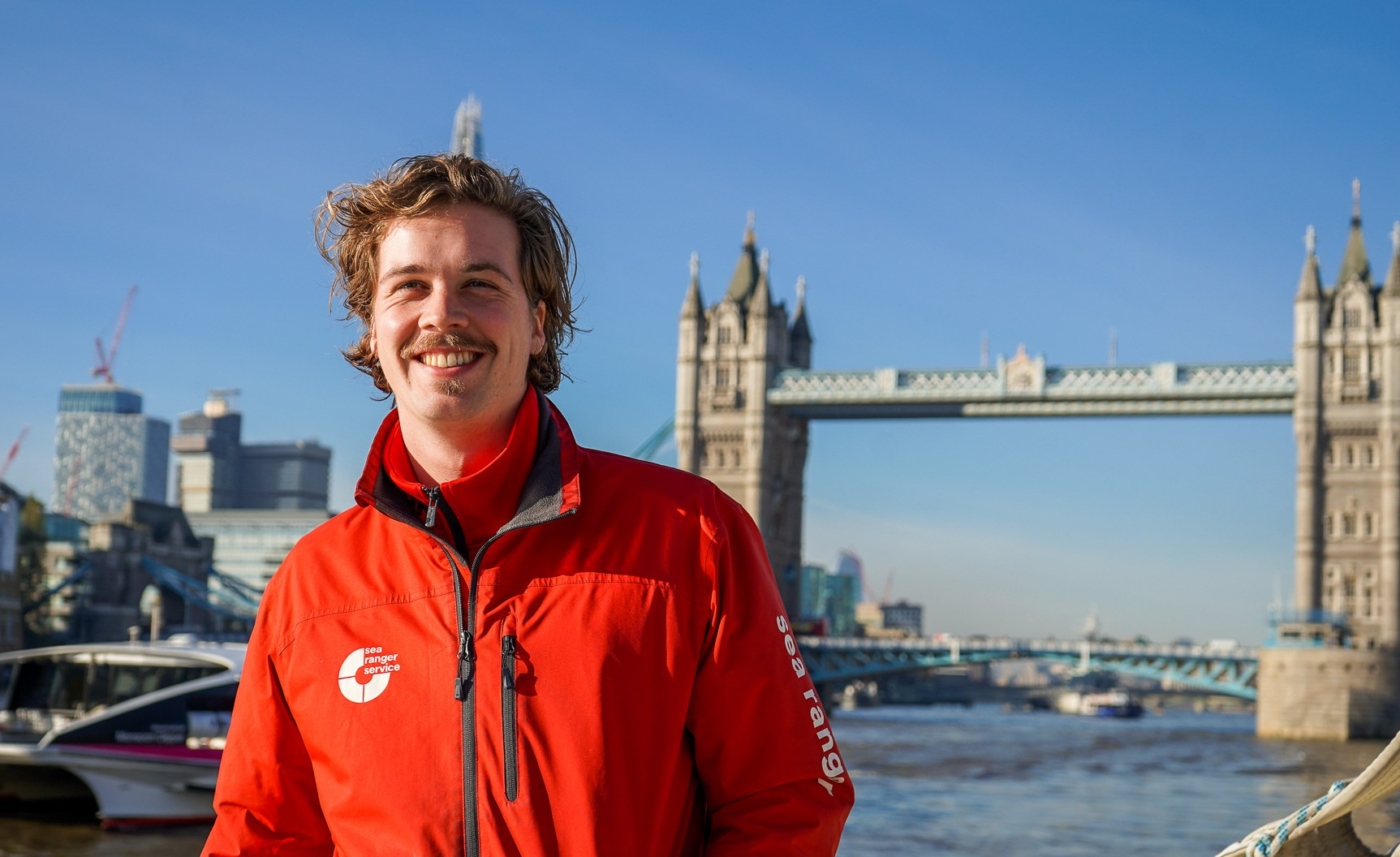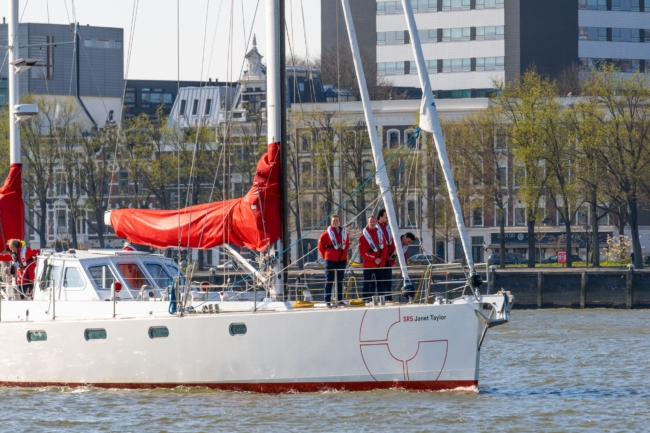Marius grew up near Delft in The Netherlands, where his days were filled with adventures in the countryside. On the nearby farms and fields, he’d often find himself helping to care for animals – whether it was rescuing stray kittens, bottle-feeding a newborn calf, or simply exploring the outdoors and sailing on the lakes. Life was rich with nature’s rhythms – and even then, the pull of the water was unmistakable. “I was around six years old,” he recalls. “when sailing to an island, and I just remember thinking how amazing it was that you could take your whole home with you, much like what we do as Sea Rangers.”
But while many childhood dreams fade with time, for Marius, the sense of freedom and fascination never really left.
As a teenager, Marius found himself teaching sailing to kids at the local club – guiding hesitant young learners through their fears. That early experience, both of learning and later of mentoring, planted a deeper seed: that progress, whether in sailing or in life, begins when someone truly understands your experience and supports you in a way that speaks to it.
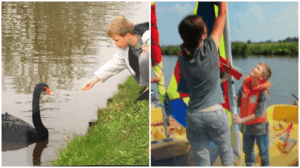
From studying psychology to finding a purpose
As Marius grew older, he decided to study applied psychology, drawn to the idea of influencing behaviour for positive change. “I liked the challenge of figuring out complex problems,” he explains. “How do we live more sustainably? How do we get people to actually change their habits?” It wasn’t a clear-cut path, but it was driven by a strong sense of purpose.
Bootcamp and a new kind of leadership
When Marius joined the Sea Ranger Bootcamp, he didn’t quite know what to expect. He wasn’t chasing a fixed career plan – he was looking for a challenge, for learning, for something real. What he found was all of that, and more.
“The bootcamp surprised me,” he says. “It taught me that being proactive doesn’t always mean speaking up. Sometimes it means making space for others to be heard.” For someone who’s naturally quick to offer ideas or take the lead, this was a powerful shift. “It was a subtle but big lesson – leadership can also be about silence and support.”
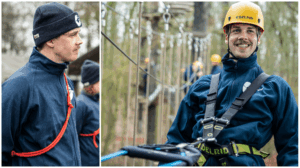
Life at sea: complex, demanding, and deeply human
After the bootcamp, Marius became a Sea Ranger, then a Senior Sea Ranger, and now serves as Project Coordinator Offshore. His work is a web of responsibilities: coordinating teams, ensuring the vessel is seaworthy, planning maintenance, liaising between ship and office, mentoring new Sea Rangers, and managing complex fieldwork logistics. “There’s always something – one part depending on another. You have to constantly think ahead,” he says.
“When it all flows – when the team is in sync, the operations run smoothly, and everyone knows what’s expected of them – that’s the best feeling,” Marius says. “It’s rewarding to see it all come together.”
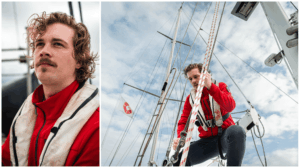
People at the centre of it all
Marius brought his background in psychology into his role, weaving it into the way he coaches and supports others. “I try to notice what people bring to the table. It might not be sailing, but often there’s a connection between past experiences and what they’re learning now. Recognising those links can make new situations feel less overwhelming – and it helps people feel seen and valued within the team. That’s what I try to focus on when I work with others.”
The sea, for Marius, is more than a workplace. It’s peace, clarity, and connection. “The waves feel like the world is breathing. I love that.” But he’s also clear-eyed about the realities. “People think sailing is just freedom and dolphins, but it’s also maintenance, planning, risk assessment. It’s work.”
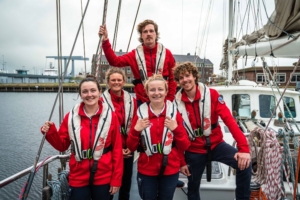
Working for a future that works for all
Marius sees in the Sea Ranger Service a rare and valuable model – one that blends environmental action with social impact. “It’s not just about restoring nature – it’s about giving people real opportunities. I think that’s powerful.”
Looking ahead, Marius remains committed to sustainability in all forms. Whether at sea or in future endeavours like sustainable building, he wants to be part of systems that work – for people and for the planet.
His advice to young people who want to work in nature is simple and honest: “It’s tough. There’s not enough funding. But try to find organisations that are doing the work anyway – who are trying to change the system from within. That’s what gives me hope.”


